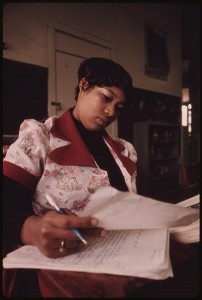gender studies: more than just a feminist niche
The university degree of gender studies has long been associated with the stereotype of man-hating feminists picketing wildly over unequal opportunity and sexist politicians. However, what many people fail to realise is that gender studies is built upon a structured discipline that equips students, both male and female, with an understanding of political science, history, sociology and the ability to challenge our unequal social norms.
Gender as a practice, at first, may appear a little one-sided; yet, contrary to common belief, the course certainly does not just focus on female inequality. The cohort doesn’t consist of a room full of women expressing outrage at our misogynist world. The degree offers insight into racism, bigotry and homophobia, providing a framework for dealing with social and political issues.
‘The degree sets an individual up for an excellent grounding in politics’, said gender studies student Anna Worsley, who is currently enrolled in the degree at Macquarie University in Sydney.
‘Gender studies recognises the struggles and issues not just concerning women but men too.’
So why do people still frown upon gender studies as if it’s breeding feminists?
Even in a world where diversity and self expression is encouraged and celebrated, stereotyping is a real and far too common issue. It’s almost natural for people to place others in categories based on sexuality, but educating youth about gender is a powerful mechanism for change.
‘It has helped me believe that I can change the world one interaction at a time,’ Ms. Worsley says of her studies.
Understanding identity is an enriching tool that young men and women can use both in everyday interactions and in their careers. Gender and sexuality is still an issue in the workplace, and universities offering gender studies provide an opportunity for these social concerns to be confronted, and, perhaps one day, eliminated.
Anna believes that although there has been active progress in recent times to quash the unspoken inequalities existing against anyone that isn’t straight white males, there is still room for improvement.
‘There are two ways a workplace will manage the lesbian, gay, bisexual, trans*, queer and intersex (LGBTIQ) communities and that is either using them as a pin-up, saying “look we have diversity among our staff”, or it will be the rainbow elephant in the room,”‘ she said, ‘and neither is healthy.’
Despite the typecasting, enrolment in gender studies in Australia remains strong, with around 200 people enrolled in the first year course at Macquarie University, with a surprising 10 per cent being male. This brings new hope unto the degree’s future, after the University of Queensland’s decision to discontinue the course sent a ripple effect of concern through the nation’s gender studies students.
‘[People] are ignorant to the importance of this course,’ says Worsley. ‘Every person who studies gender studies has a better understanding of the inequality within society and proactively strives to minimise it.’
Inequality amongst ethnicities, religions, genders and sexualities still inhabit our society, so it makes sense to persist in the study of gender and to support the degree’s continuation in our nation’s universities. In a world that is defined by gender, it is important that identity and sexuality are accepted and understood in order to re-write the history books.
Gender studies and the fight for equality go hand and hand, and with the vivaciousness of its existing students, it’s hard to believe the discipline will ever be phased out.


